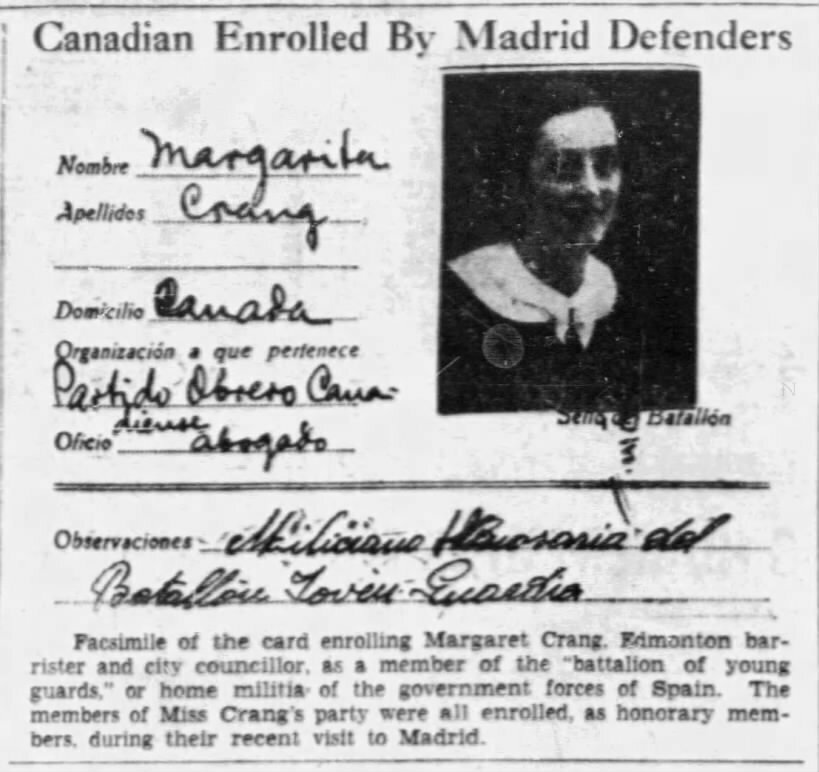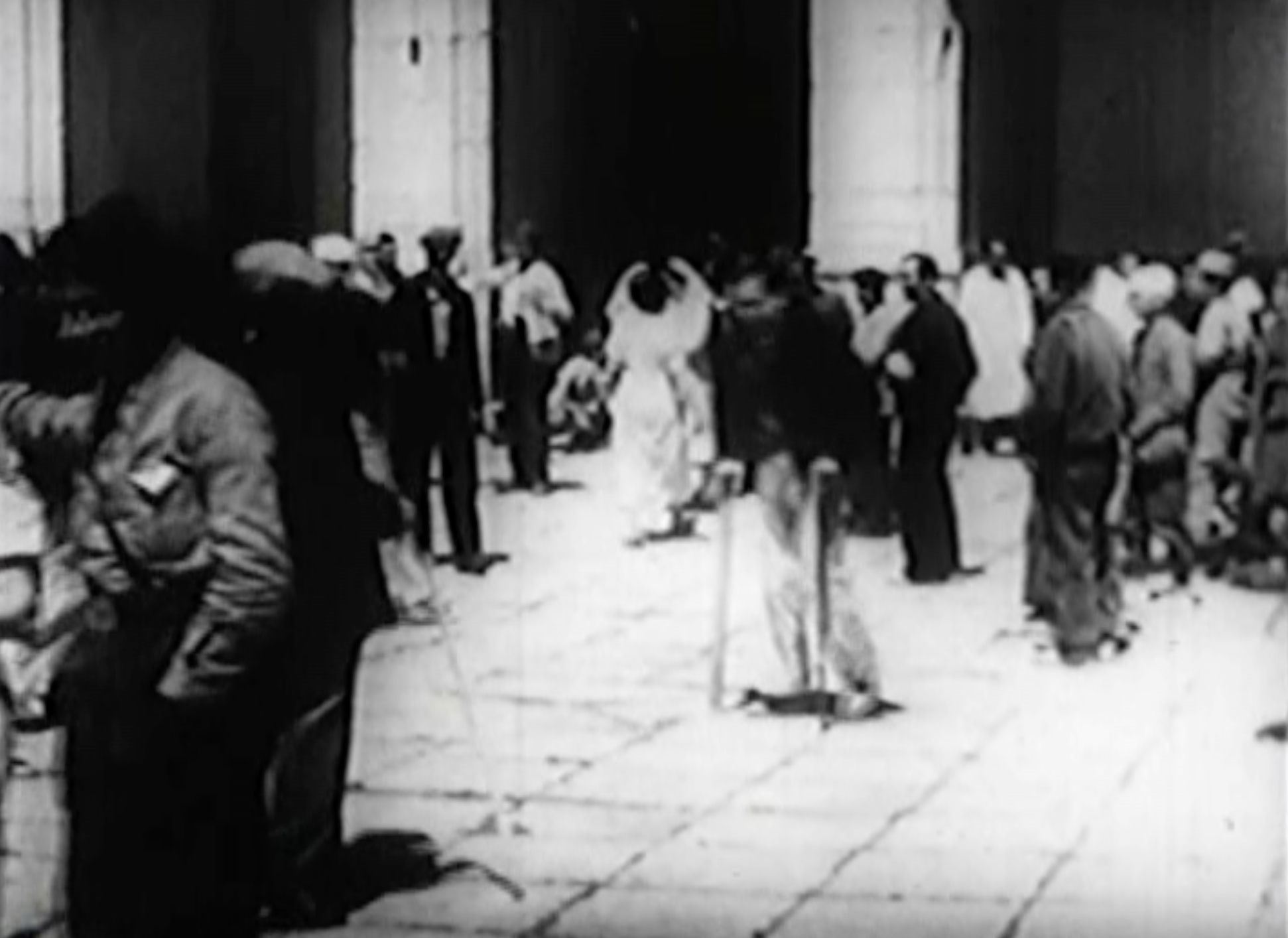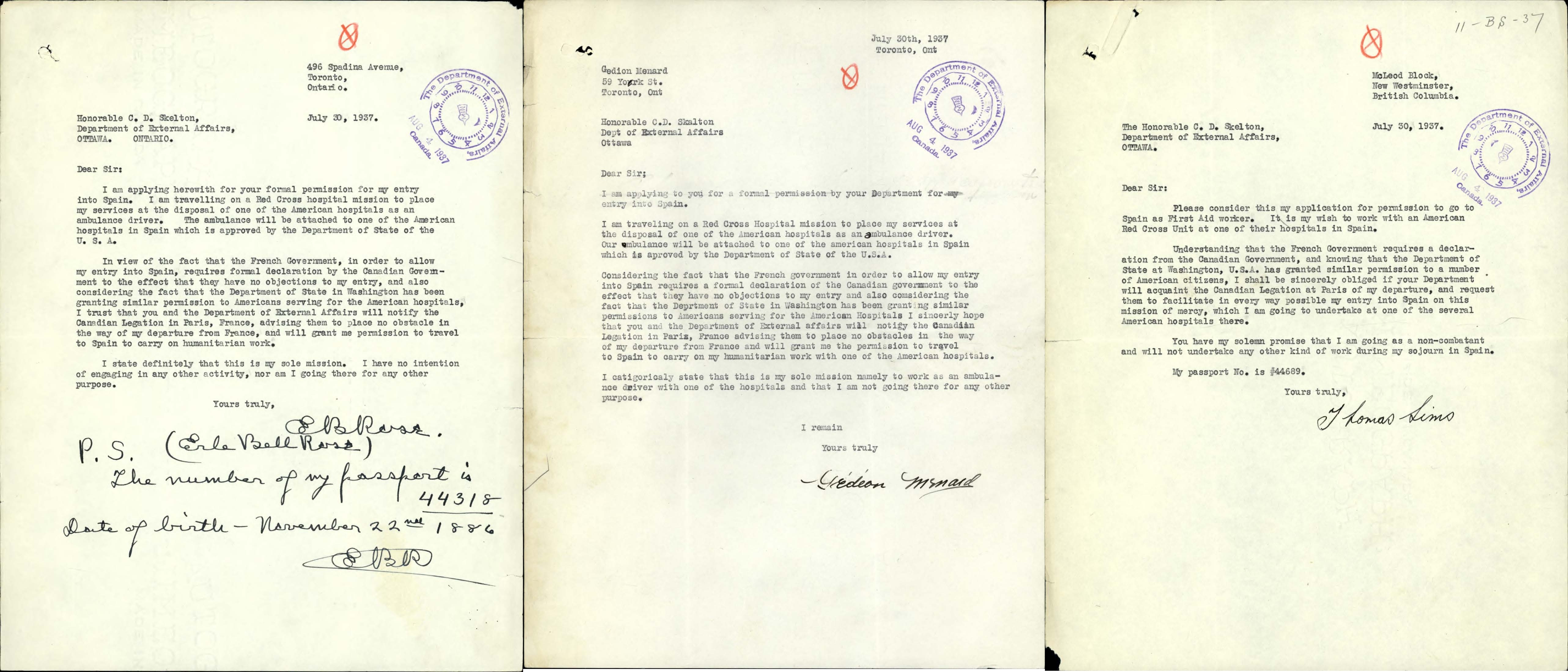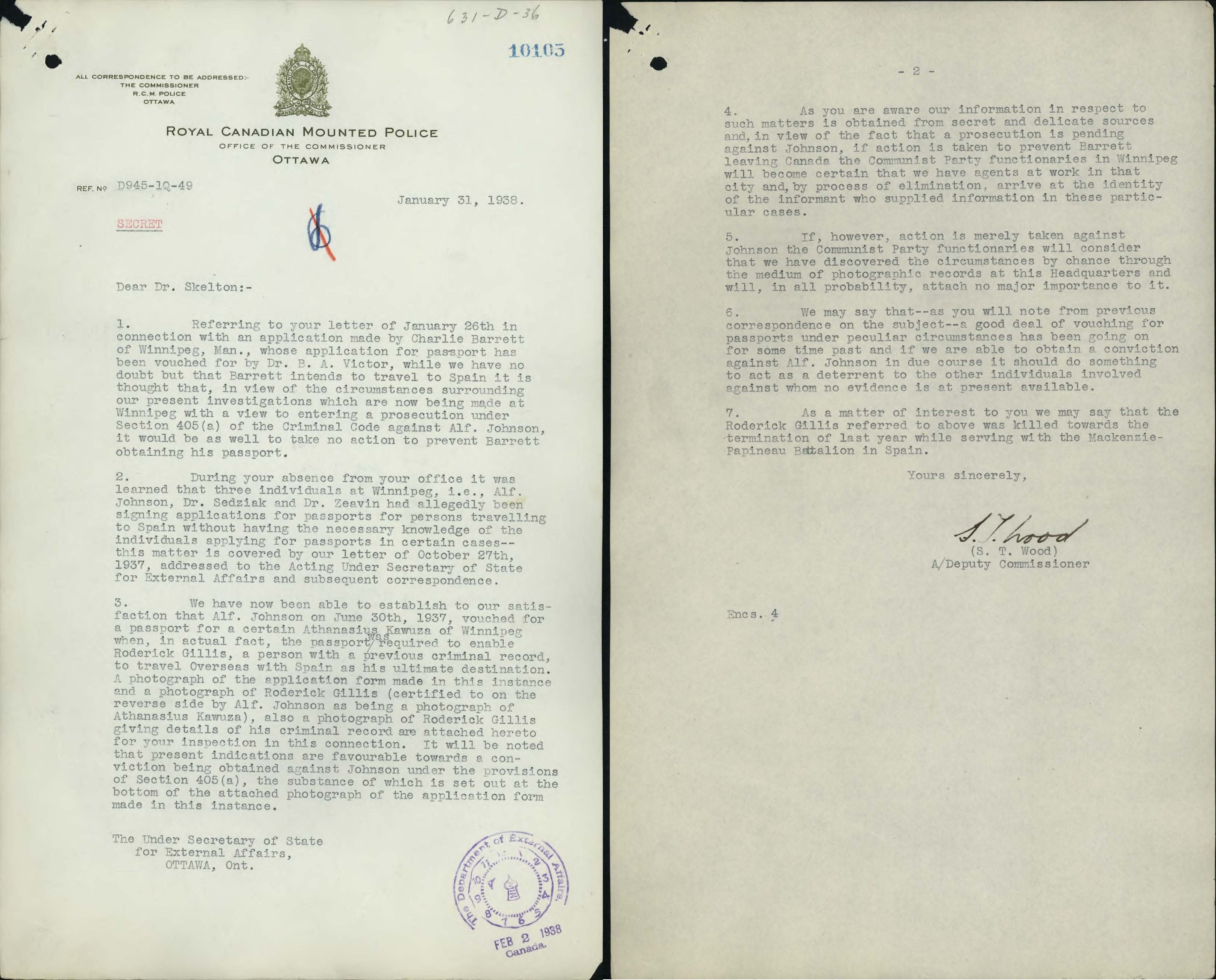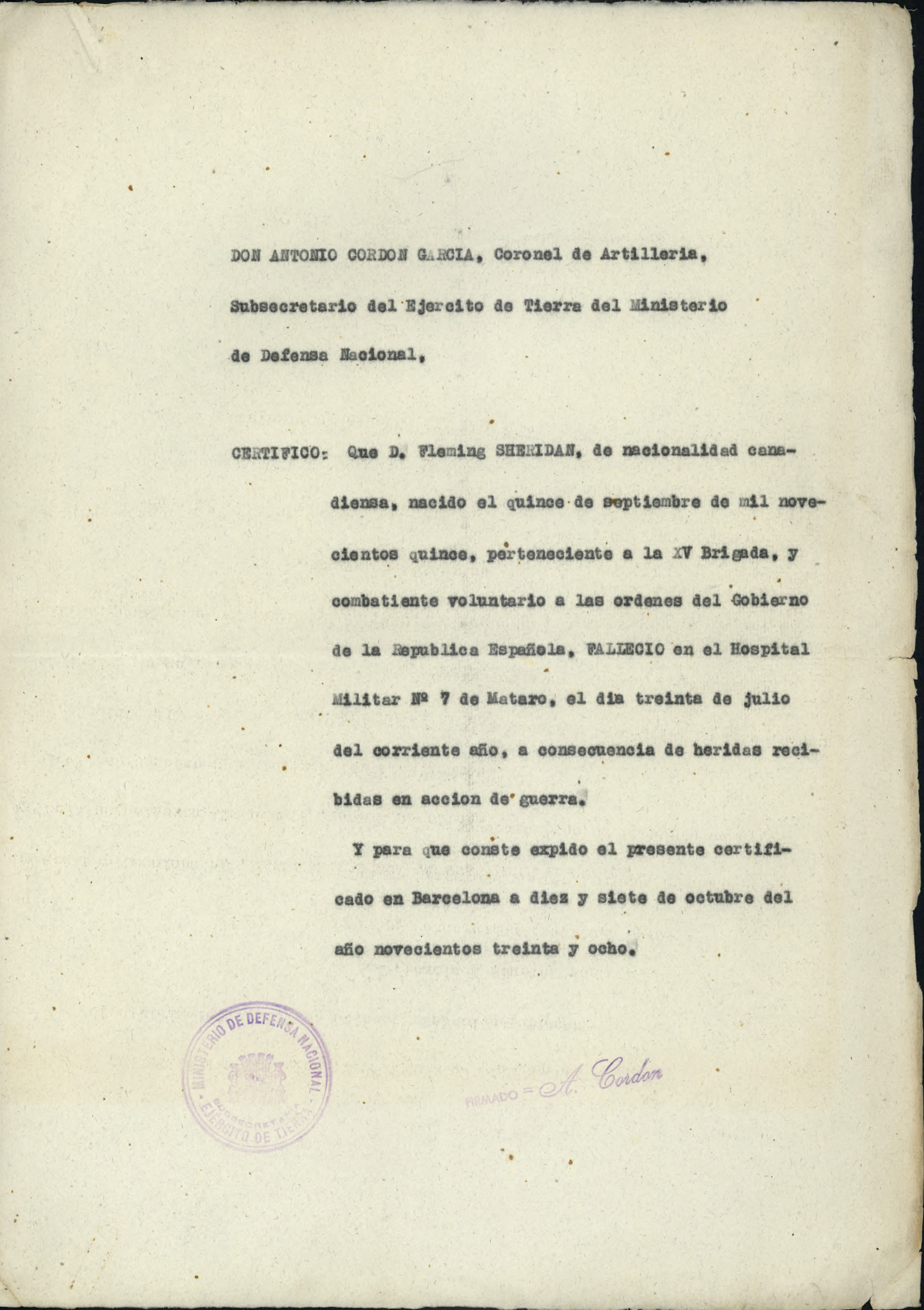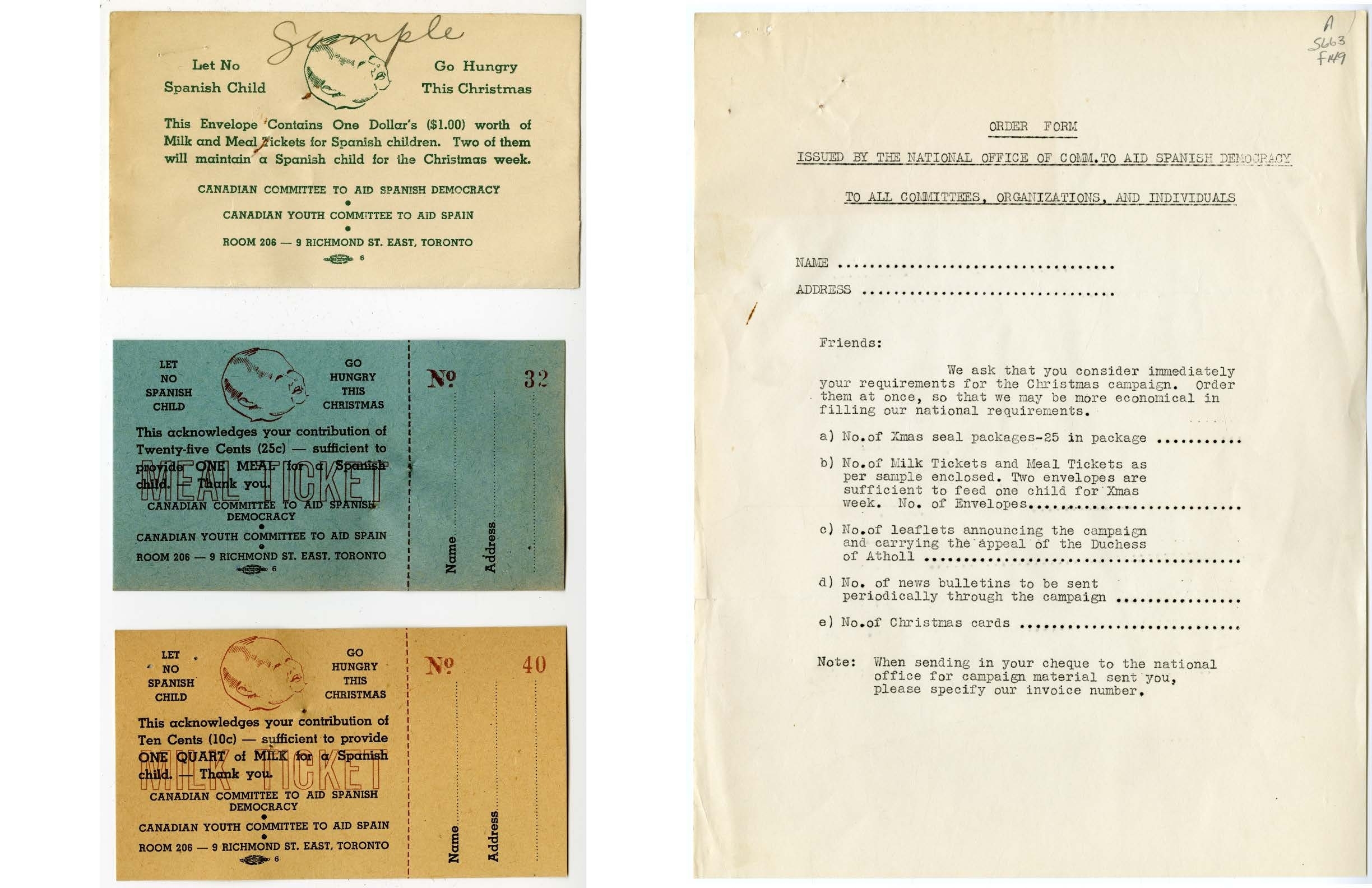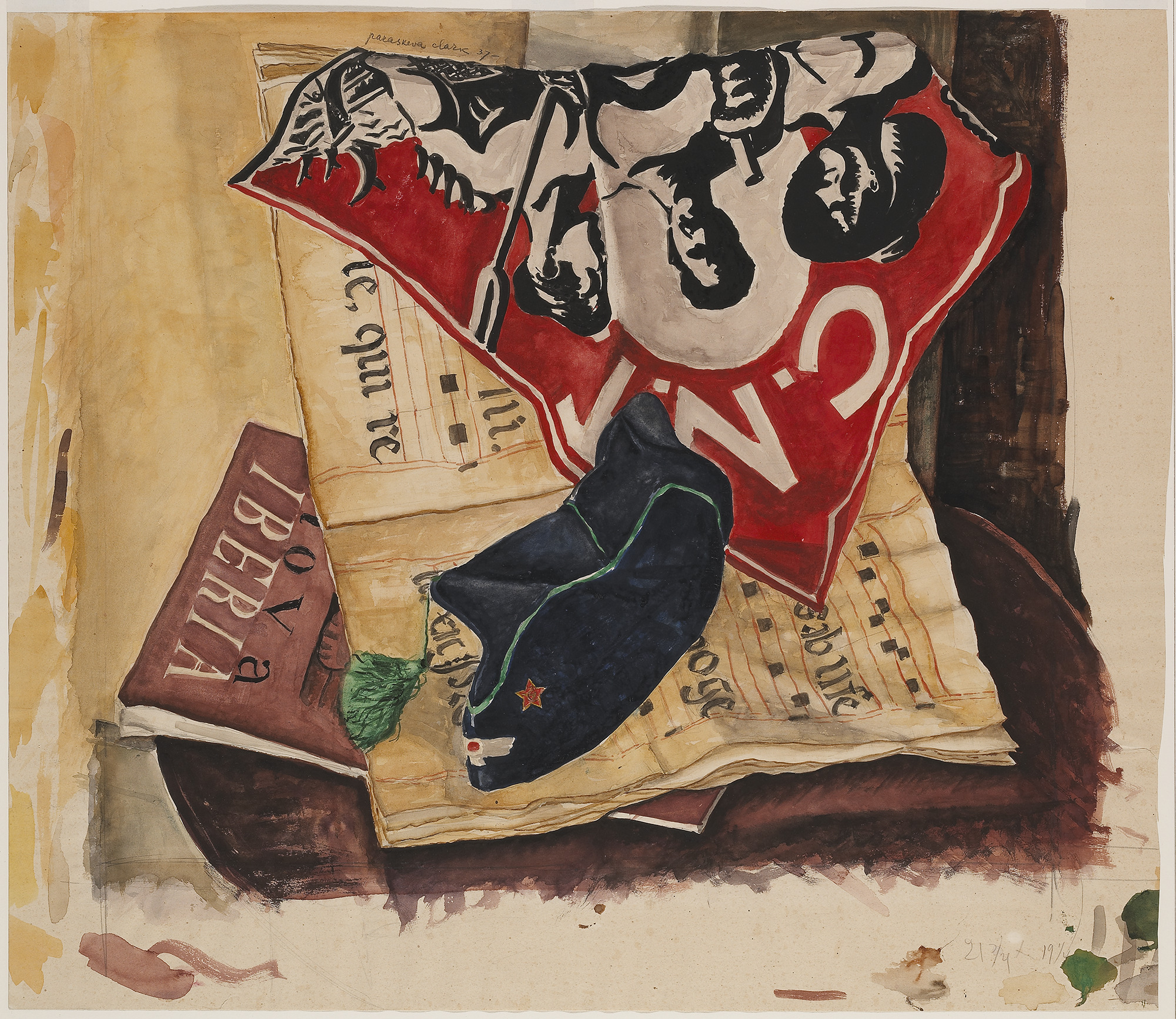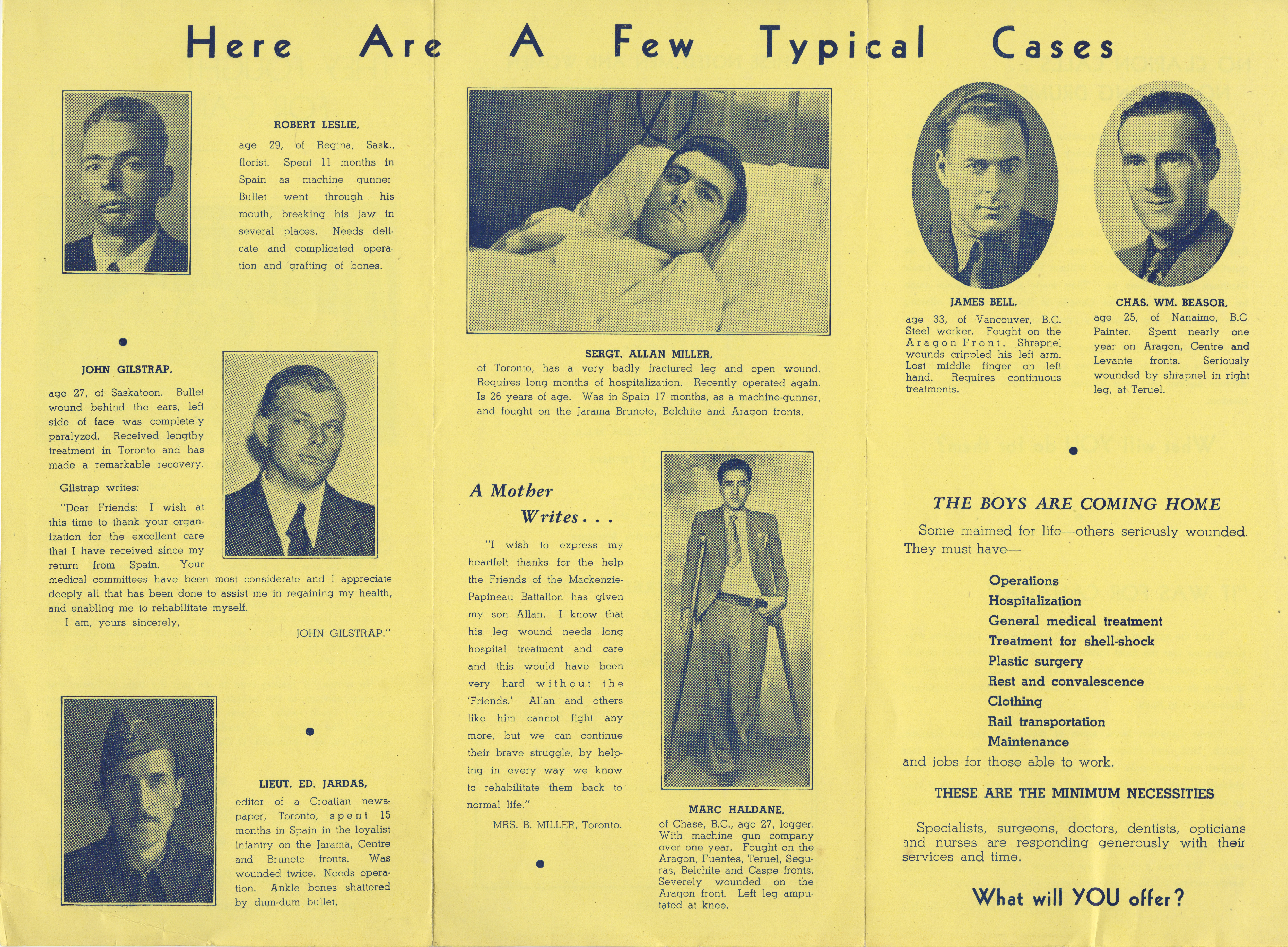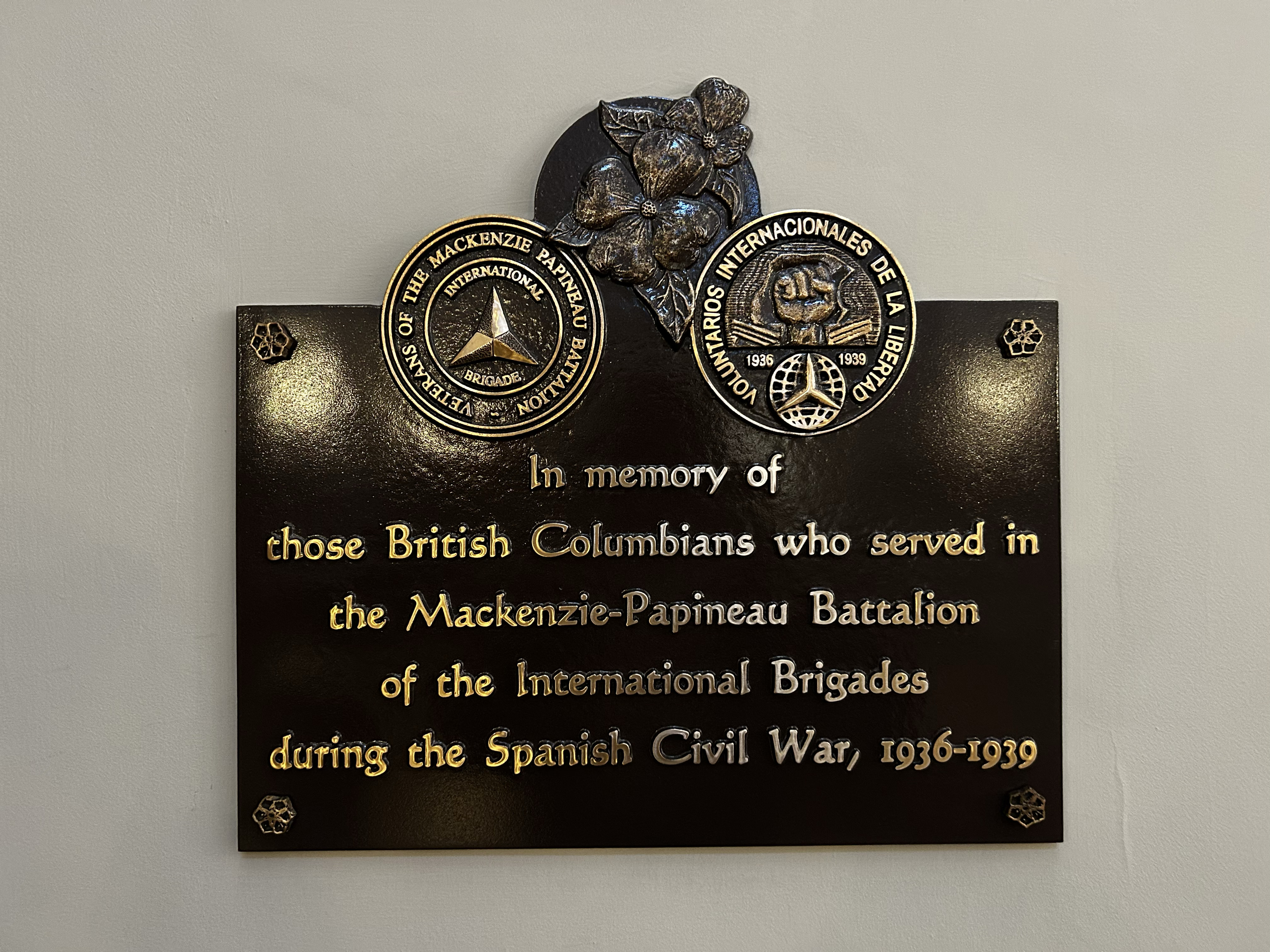The Spanish Civil War gripped the global public, and Canada was no exception. Some 35,000 people from 53 countries would become members of the International Brigades. Of these, just under 1,700 would come from Canada and about 750 would die in Spain. In per capita terms, only France ranked higher.
The Communist Party of Canada handled Canadian recruitment. The party also arranged getting the volunteers to Spain, including helping with their passport applications, paying for their travel, and giving them identical cardboard suitcases. Until the Mackenzie-Papineau Battalion was created in July 1937, most Canadians served with the Americans, although many chose to serve in the Polish, Bulgarian, Yugoslav, and other European units.
Back home, the Spanish Civil War divided society. There was widespread support for the Republic on the left and left-wing political parties co-operated in creating the Canadian Committee to Aid Spanish Democracy. In Quebec, the Catholic Church and the political and social elites expressed pro-Franco sentiment. The Canadian Prime Minister, Mackenzie King, opted to align his views with those of most European political leaders: non intervention. Furthermore, his government prevented Canadians from going to Spain by passing the Canadian Foreign Enlistment Act in 1937.
The impact of the Spanish Civil War in Canada did not end in 1939. The federal government has never recognized the Mackenzie-Papineau battalion. More than eighty years after the end of the conflict, the place of the Spanish Civil War in Canadian history, culture, and memory is far from settled.
The 10 selected objects demonstrate the range of emotions and actions triggered by the Spanish Civil War. Some show the commitment of many Canadians, determined to stop fascism in Spain. Others, and in particular documents from the Royal Canadian Mounted Police and the Department of Foreign Affairs, express concern for the spread of communism in Canada and question how to stop Canadians from going to Spain.








